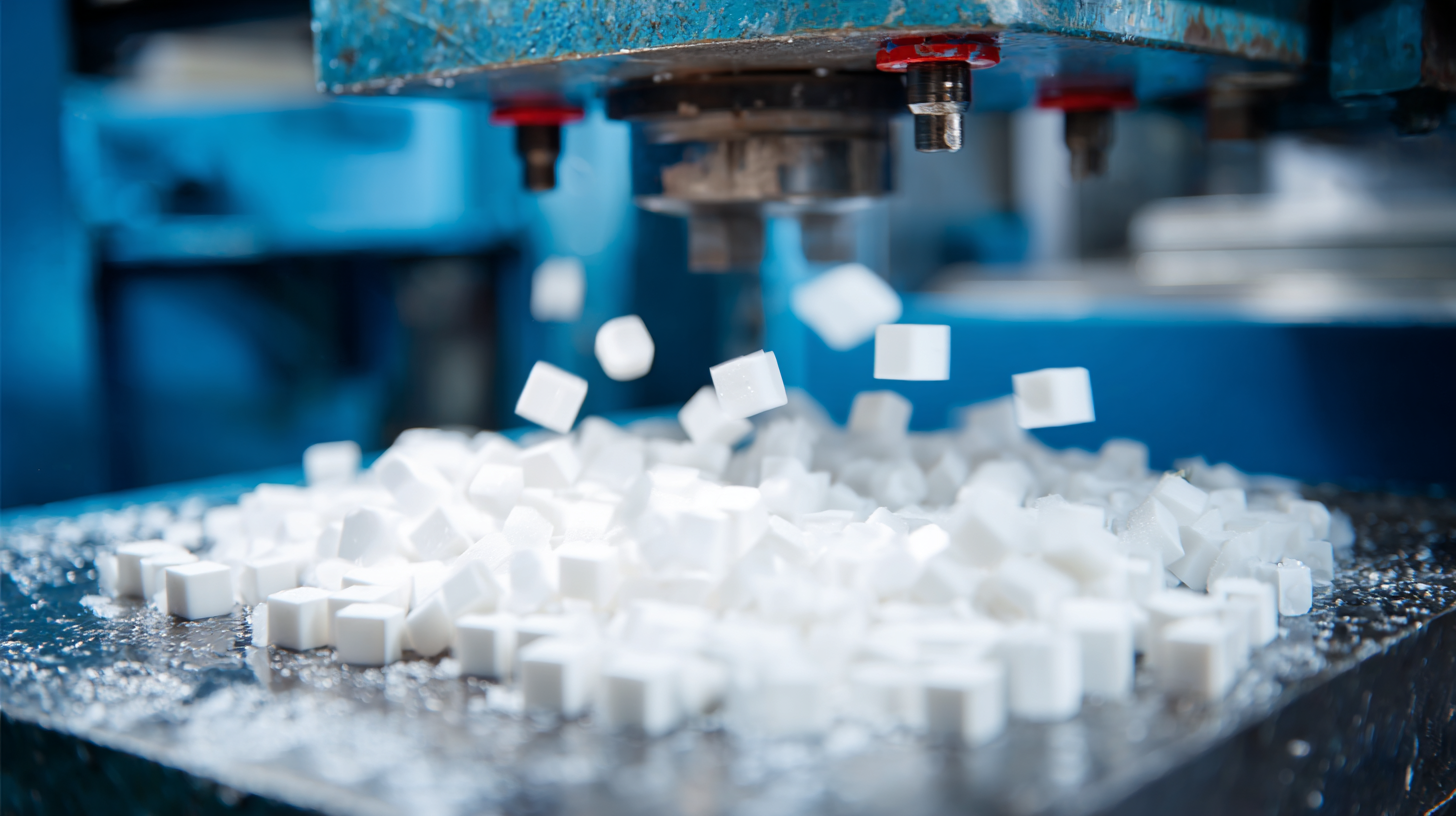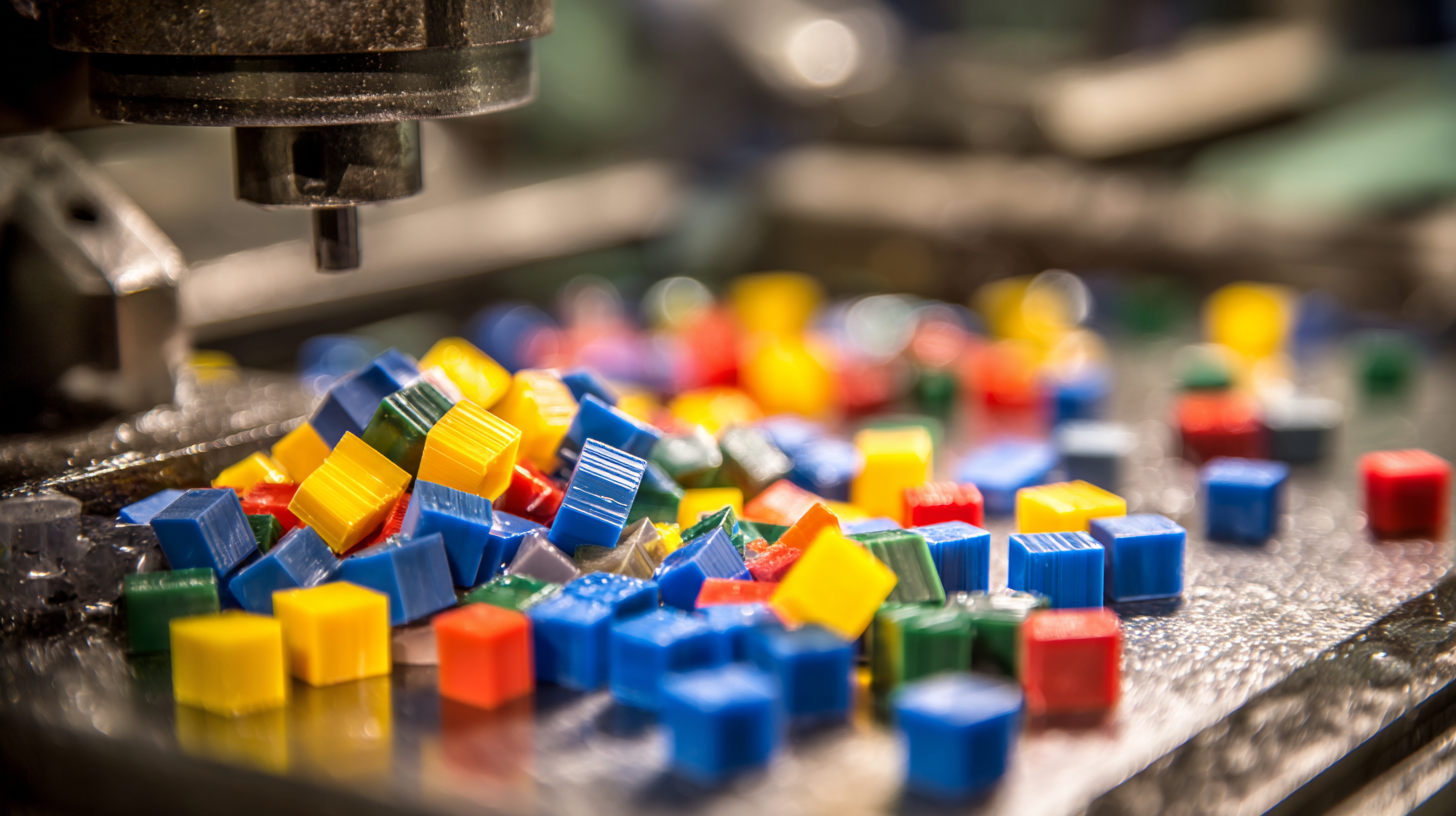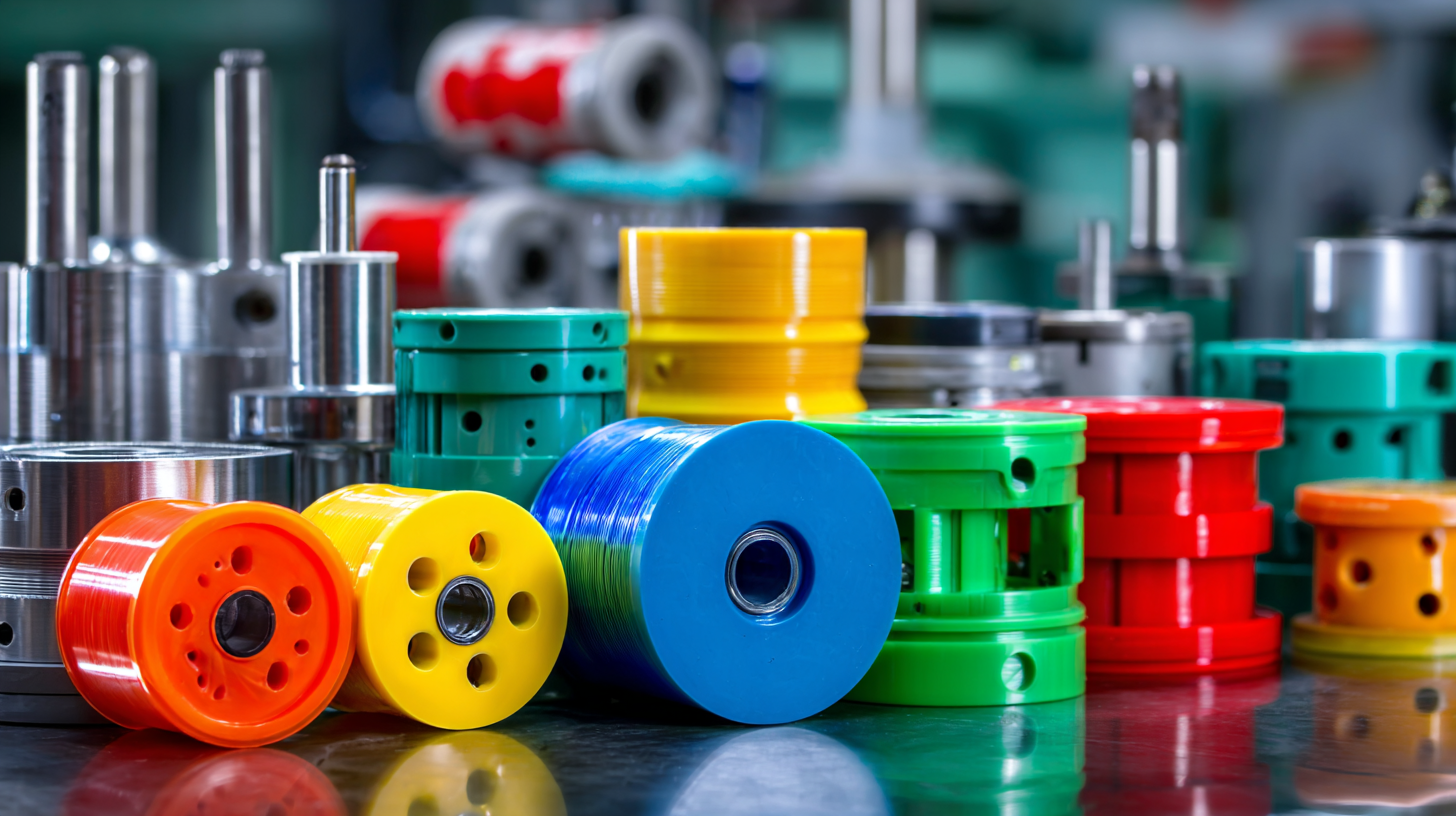7 Reasons Why Polypropylene Injection Molding is the Best Choice for Your Project
In the competitive landscape of manufacturing, selecting the right material and process can significantly impact the success of a project. Polypropylene injection molding has emerged as a leading choice for various applications, driven by its unique properties and cost-effectiveness. According to a recent market report by Grand View Research, the global polypropylene market is expected to reach $160.89 billion by 2027, growing at a CAGR of 5.7%. This surge is largely attributed to the material's excellent chemical resistance, lightweight nature, and versatility, making it ideal for automotive, consumer goods, and packaging industries.

As companies seek efficient and sustainable production methods, polypropylene injection molding stands out not only for its operational efficiency but also for its potential to reduce waste and energy consumption in the manufacturing process. These compelling advantages make polypropylene injection molding the best choice for your next project, ensuring both quality and affordability.
Advantages of Polypropylene in Injection Molding: A Comprehensive Overview
Polypropylene injection molding has emerged as a leading choice for various manufacturing projects, and its advantages significantly contribute to this trend. One of the most notable benefits of polypropylene is its lightweight nature, which makes it easy to handle and reduces shipping costs. Additionally, this material offers excellent chemical resistance, making it ideal for projects that require durability against harsh substances. As a result, products made from polypropylene can withstand rigorous conditions without degrading, ensuring a longer lifespan and lower replacement costs.
Another compelling advantage of polypropylene in injection molding is its versatility. This polymer can be molded into a wide range of complex shapes and designs, allowing for creativity and flexibility in product development. Moreover, polypropylene possesses a high melting point, enabling it to maintain structural integrity under heat, which is especially beneficial for applications in automotive and consumer goods. Its recyclability further enhances its appeal, aligning with sustainability goals while providing manufacturers with an eco-friendly option that reduces environmental impact. These factors combined make polypropylene a smart and efficient choice for various projects in the injection molding industry.
Understanding the Durability and Versatility of Polypropylene Products
Polypropylene is increasingly recognized for its impressive durability and versatility, making it a top choice in injection molding projects. One of its standout features is its resistance to many chemical solvents, bases, and acids, which allows products made from polypropylene to withstand harsh environments without degrading. This characteristic is especially beneficial in industries like automotive and packaging, where materials often face exposure to various substances. Furthermore, polypropylene is known for its fatigue resistance, enabling it to maintain its integrity under repetitive stress, which is crucial for products that require durability over time.
Another significant advantage of polypropylene lies in its lightweight nature coupled with high strength. This combination makes it ideal for a wide range of applications, from consumer goods to industrial components. The ease of molding polypropylene into complex shapes adds to its appeal, allowing engineers and designers to create innovative products without compromising on structural integrity. Its versatility extends to colorability and the ability to be easily recycled, providing sustainable solutions without sacrificing performance. Overall, the durability and adaptability of polypropylene position it as a premier material choice for modern manufacturing needs.
7 Reasons Why Polypropylene Injection Molding is the Best Choice for Your Project
| Reason | Description | Key Benefit |
|---|---|---|
| Durability | Polypropylene is highly resistant to chemicals, moisture, and UV light. | Longer lifespan of products. |
| Versatility | Can be used in various applications ranging from automotive to consumer goods. | Flexibility in manufacturing for different sectors. |
| Cost-Effectiveness | Lower material costs compared to other plastics and easy to process. | Reduced overall project costs. |
| Lightweight | Offers a high strength-to-weight ratio. | Easier handling and transportation. |
| Recyclability | Easily recyclable, contributing to sustainability efforts. | Supports eco-friendly projects. |
| Ease of Processing | Injection molding processes are quicker and more straightforward with polypropylene. | Faster production cycles. |
| Chemical Resistance | Resistant to many acids, alkalis, and solvents. | Safer for various industrial applications. |
Cost-Effectiveness: Why Polypropylene is Budget-Friendly for Projects
Polypropylene (PP) has emerged as a leading choice in injection molding, primarily due to its cost-effectiveness. According to a report by the Plastic Industry Association, the demand for polypropylene is expected to grow significantly, reaching nearly $6 billion by 2025. This surge can be attributed to its budget-friendly nature, as polypropylene is not only inexpensive compared to alternatives like polycarbonate or nylon, but also offers substantial savings in material waste and production efficiency.
The versatility of polypropylene further enhances its economic appeal. It is known for its lightweight properties, which can reduce shipping and handling costs. A study from Grand View Research indicates that the global polypropylene market is valued at approximately $80 billion, underscoring its popularity across various applications including automotive, packaging, and consumer goods. By choosing polypropylene injection molding, businesses can benefit from lower initial material costs, reduced energy consumption during processing, and an overall lower cost per part, making it a smart financial choice for any project aiming for both quality and savings.

Environmental Impact: The Sustainability of Polypropylene Molding
Polypropylene injection molding has gained significant traction in recent years, particularly due to its lower environmental impact when compared to other materials. One of the standout features of polypropylene is its recyclability; it is classified as a number five plastic, which is widely accepted in recycling programs. This makes it an excellent choice for companies looking to enhance their sustainability practices while still delivering high-quality products. The ability to recycle polypropylene not only reduces landfill waste but also diminishes the need for virgin materials, thus conserving natural resources.
Moreover, the production process associated with polypropylene injection molding is generally less harmful to the environment. The energy consumption during manufacturing tends to be lower than that of other plastics, which helps in reducing the carbon footprint of the product. Additionally, polypropylene is known for its durability, meaning that products made from this material tend to have a longer lifespan, resulting in less frequent replacements. This characteristic is crucial for companies striving to implement eco-friendly solutions, as longer-lasting products lead to decreased resource consumption over time.
Applications of Polypropylene: Industries That Benefit Most from Its Use
Polypropylene (PP) has gained significant traction across various industries due to its remarkable versatility and advantageous properties. One of the primary sectors benefiting from polypropylene injection molding is the automotive industry, where lightweight and durable components are essential. PP is utilized in creating interior trims, bumpers, and even battery housings, contributing to fuel efficiency while maintaining safety and aesthetics.

Another sector that takes full advantage of polypropylene is packaging. Its excellent chemical resistance and light weight make it an ideal choice for food packaging, medical supplies, and consumer products. This plastic ensures that items remain secure and protected, enhancing shelf life while reducing transportation costs. Additionally, the textile industry has embraced polypropylene for its robust fibers, used in products ranging from carpets to reusable bags, showcasing the material's flexibility and effectiveness. Polypropylene’s broad applicability across these industries illustrates its role as a material of choice for modern manufacturing solutions.
Related Posts
-

Ultimate Guide to Sourcing PVC Sheets for Your Global Supply Chain Success
-

Understanding Injection Molding Tooling Processes and Their Industry Impact
-

How to Choose the Right Plastic Coating for Your Manufacturing Needs
-

Envisioning Tomorrow: The Role of Polypropylene Plastic in Sustainable Manufacturing
-

Unveiling the Advantages of Polypropylene Plastic: A Game Changer for Modern Manufacturing
-

Ultimate Checklist for Selecting the Right Plastic Profiles for Your Projects
